
Dresdner Christstollen (Dresden christstollen)

Frankfurter Grüne Soße (Frankfurt green sauce)
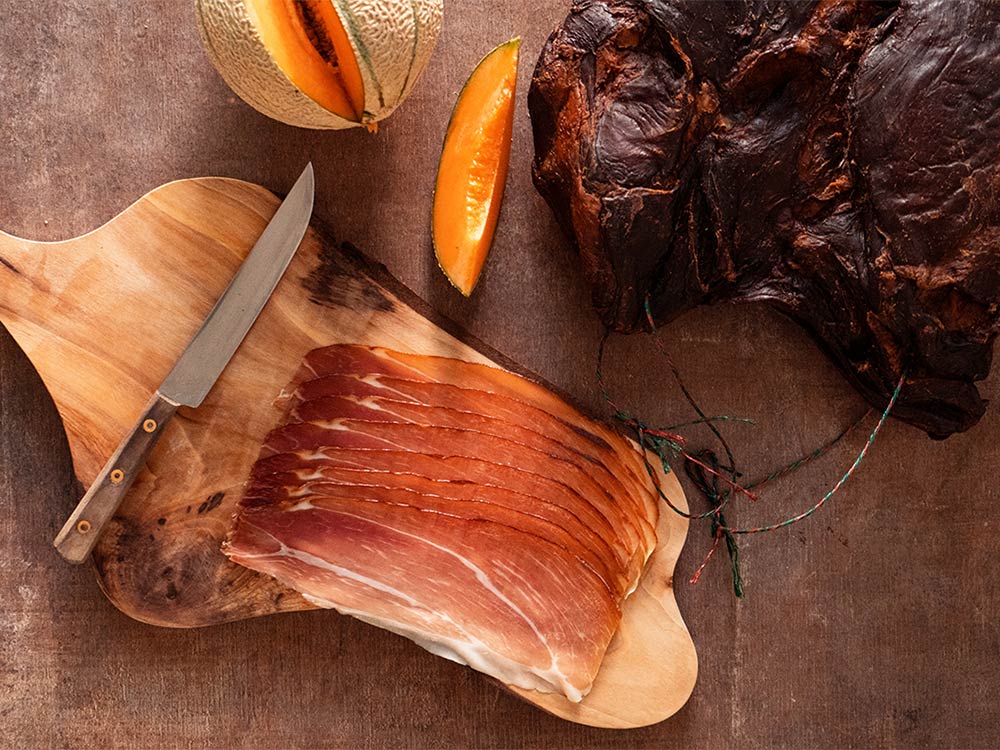
Schwarzwälder Schinken (Black Forest Ham)

Aachener Printen
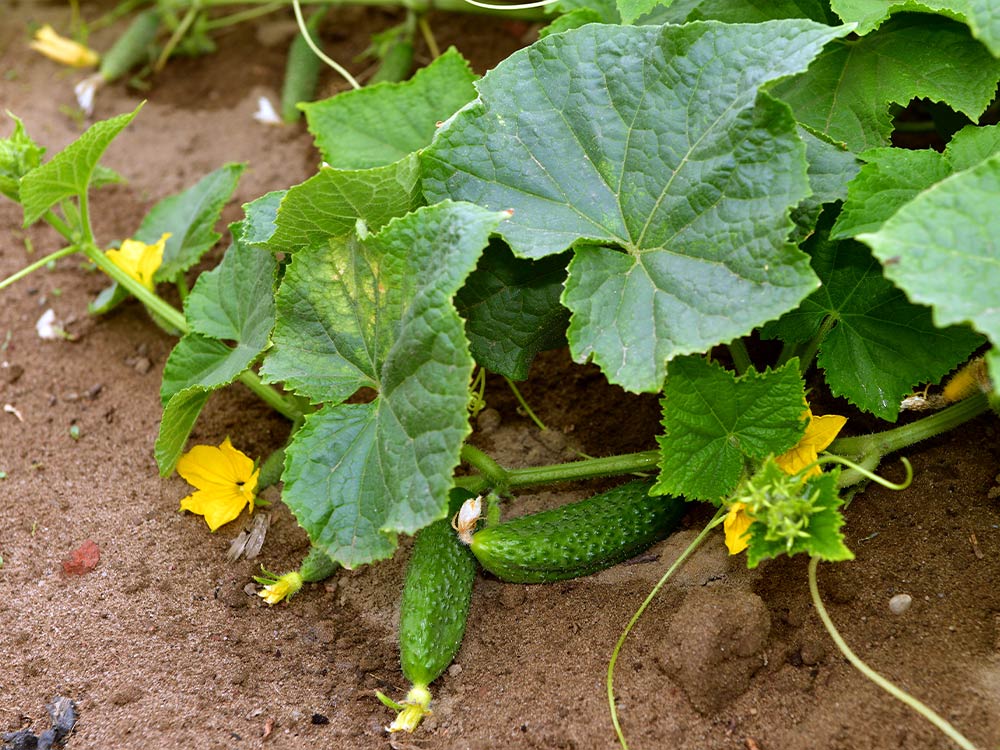
Spreewälder Gurken

Thüringer Rostbratwurst (Thuringian grilled sausage)
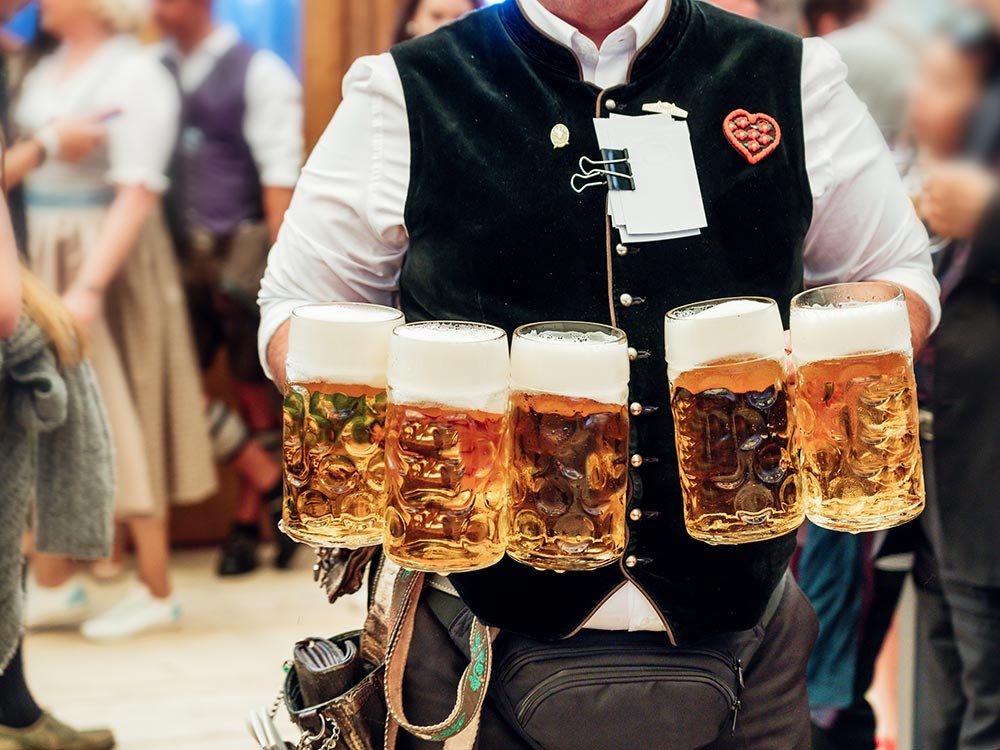
Münchner Bier
It is probably less well known that all these product names are protected at the European level as what is known as “indications of geographical origin”. The legal basis is Regulation (EU) No. 1151/2012. The prerequisite is that the quality or reputation of a product is essentially attributable to its geographical origin. Protection applies to food and agricultural products and covers various product categories such as meat products, fish, cheese, fruit, vegetables, vinegar, oil, bread, pastry or beer. For each product there is a product specification with a detailed description of the product. Only products that comply with these requirements may be marketed under the protected name.
Applicants can apply for PDO (protected designation of origin) status or PGI (protected geographical indication) status. To qualify for PDO status, all stages of production must take place in the region of origin. For PGI status, it is sufficient if (at least) one of the stages (production, processing or preparation) takes place in the region concerned.
Protected geographical indication
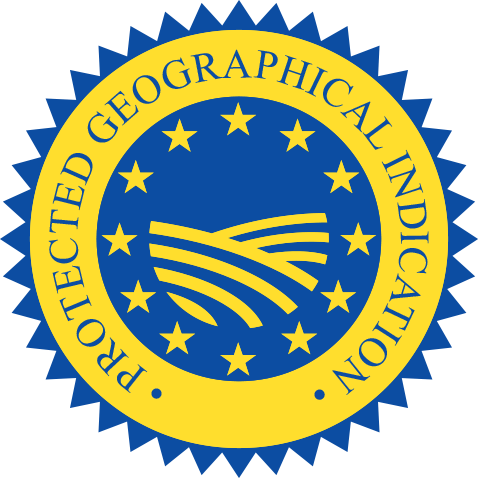
PGI
production or processing or preparation
Protected designation of origin
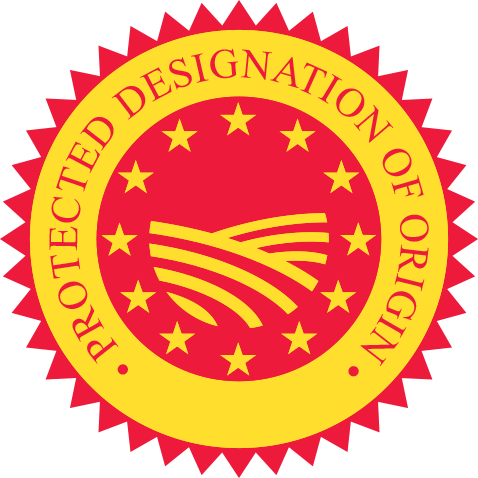
PDO
production and processing and preparation
must take place in the region, location or country concerned.
The examination procedure is conducted in two stages. First, the application for registration is examined by the competent national authority. In Germany, this is the German Patent and Trade Mark Office (DPMA). After positive assessment, the application is forwarded to the European Commission for examination. The application will be published under both assessment procedures. This gives other persons the opportunity to notify their opposition if their legitimate interests are affected — in particular other producers of the relevant product. If the European Commission also considers that the conditions for protection are met, the IP right will be registered and an entry is made in the eAmbrosia database.
The protection system is not limited to the member states of the European Union, but also allows third countries to have such geographical indications registered in Brussels that are protected in their home countries. Currently, 102 such geographical indications from third countries are registered, now, after UK’s withdrawal from the European Union, also including the 73 geographical indications protected for the United Kingdom.
In 2020, the DPMA received two new applications for registration. After positive conclusion of the examination, the DPMA forwarded the application for registration of “Spreewälder Gurkensülze” (cucumber aspic) as PGI, the request for cancellation of “Holsteiner Karpfen” (fish) (PGI) as well as the applications for the amendment of the specifications of the PGIs “Hofer Rindfleischwurst” (sausage) and “Salzwedeler Baumkuchen” (cake) to the European Commission. In 2020, the European Commission published the two amendment applications relating to the PGIs “Münchener Bier“ (beer) and “Rheinisches Zuckerrübenkraut“ (syrup), for which it considers the conditions to be fulfilled. The application for the amendment of the specification of the PGI “Rheinisches Apfelkraut“ (apple butter) was approved by the European Commission.
In addition to eAmbrosia, GIview is another database for searching geographical indications. This database, developed by the Commission and EUIPO, contains indications on food, agricultural products, wine, aromatised wine and spirit drinks as well as geographical indications protected under bilateral or multilateral agreements at EU level. In addition, it provides a similarity search as well as translation options and examples.
In February 2020, a two-day workshop of the Max Planck Institute for Innovation and Competition on “Geographical Indications” was held in Munich, which was also attended by representatives of WIPO, the WTO, the European Commission and EUIPO. The DPMA was represented by two staff members from the trade mark division. The workshop presented the current research project of the Max Planck Institute, which comprehensively analysed the GI system within the EU and beyond. Other topics covered the possibility of expanding protection to non-agricultural products as well as the relationship between trade marks and geographical indications.
